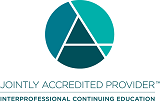33rd Annual Internal Medicine Board Review 2024
This course offers Live (in-person) and Livestream (virtual) attendance options.

Course Directors: Christopher (Chris) A. Aakre, MD, April R. Christensen, MD, MS and Hannah C. Nordhues, MD
June 3 - 7, 2024 - Hilton Rochester Mayo Clinic Area Hotel - Rochester, Minnesota
The 33rd Annual Mayo Clinic Internal Medicine Board Review (IMBR) is a high-yield, intensive course designed to assist with the American Board of Internal Medicine (ABIM) Initial and Maintenance of Certification Examinations and to provide a relevant review for daily practice. Learners will gain access to excellent Mayo Clinic faculty, unparalleled content and techniques proven to enhance learning and recall.
Target Audience
This course is designed for internal medicine physicians who are:
- Intending to obtain a thorough review in internal medicine
- Completing their maintenance of certification knowledge modules
- Taking the initial ABIM certification examination
- Taking the ABIM maintenance of certification examination
Learning Objectives
Upon completion of this activity, participants should be able to:
- Identify content areas of personal strengths and weakness to focus self-study.
- Recall clinical presentation, diagnosis, and management of conditions critical to the practice of internal medicine and its subspecialties.
- Choose next best steps in the evaluation and management of common conditions.
- Apply evidence-based medicine principles to answer statistical and clinical questions.
Attendance at any Mayo Clinic course does not indicate or guarantee competence or proficiency in the skills, knowledge or performance of any care or procedure(s) which may be discussed or taught in this course.
***Please contact us at cme@mayo.edu or call 1-800-323-2688 for special group pricing if you have 3 or more individuals registering for course from the same institution.
33rd Annual Internal Medicine Board Review
Hilton Rochester Mayo Clinic Area Hotel
Program Schedule – Live and Livestream June 3-7, 2024 – Central Time
Monday, June 3, 2024 | |
6:00 a.m. | Registration & Breakfast |
7:00 a.m. | Welcome and Course Overview |
7:15 a.m. | Geriatrics
|
8:05 a.m. | Dermatology
|
8:50 a.m. | Allergy
|
9:45 a.m. | Break |
10:05 a.m. | Nutrition/Nutritional Disorders
|
10:50 a.m. | HEENT
|
11:35 a.m. | Lunch |
12:20 p.m. | Men’s Health
|
1:10 p.m. | Women’s Health: Adolescence and Beyond
|
2:05 p.m. | Hypertension and Hyperlipidemia
|
2:50 p.m. | Break |
3:05 p.m. | Psychiatry
|
3:50 p.m. | Neurology
|
5:00 p.m. | Sprint Test |
5:30 p.m. | Adjourn |
Tuesday, June 4, 2024 | |
6:00 a.m. | Registration & Breakfast |
6:55 a.m. | Course Overview |
7:00 a.m. | Endocrinology – Diabetes Part 1
|
7:45 a.m. | Endocrinology – Diabetes and Hypoglycemia Part 2
|
8:40 a.m. | Endocrinology – Bone and Parathyroid
|
9:35 a.m. | Break |
9:50 a.m. | Endocrinology – Thyroid
|
10:40 a.m. | Endocrinology – Pituitary, Gonadal, and Adrenal Disorders
|
11:25 a.m. | Rheumatology – Vasculitis
|
12:15 p.m. | Lunch |
1:00 p.m. | Rheumatology – Gout and Spondyloarthropathies
|
1:55 p.m. | Rheumatology – Arthritis
|
2:50 p.m. | Rheumatology - Systemic Lupus Erythematosus and Anti-Phospholipid Antibody Syndrome
|
3:35 p.m. | Break |
3:50 p.m. | Rheumatology - Raynaud’s, Scleroderma, Inflammatory Myopathies, and Sjogren’s Syndrome
|
4:35 p.m. | Critical Care
|
5:25 p.m. | Sprint Test |
5:45 p.m. | Adjourn |
Wednesday, June 5, 2024 | |
6:00 a.m. | Registration & Breakfast |
7:00 a.m. | Cardiology – Heart Failure and Pericardial Disease
|
8:05 a.m. | Cardiology – Coronary Artery Disease
|
8:50 a.m. | Break |
9:05 a.m. | Cardiology – ECG’s, Atrial Fibrillation, and Other Arrhythmias
|
9:50 a.m. | Cardiology – Valvular Disease
|
10:40 a.m. | Cardiology – Vascular Disease
|
11:30 a.m. | Lunch |
12:15 p.m. | Pulmonary – Pulmonary Tests
|
1:05 p.m. | Pulmonary – COPD, Asthma, and OSA
|
1:45 p.m. | Pulmonary – ILD, Pulmonary Hypertension
|
2:25 p.m. | Oncology – Breast/Gynecology
|
3:15 p.m. | Break |
3:40 p.m. | Oncology – Pulmonary
|
4:25 p.m. | Oncology – Gastrointestinal Cancers
|
5:10 p.m. | Sprint Test |
5:30 p.m. | Adjourn |
Thursday, June 6, 2024 | |
6:00 a.m. | Registration & Breakfast |
7:00 a.m. | Gastroenterology – Esophageal and Gastric
|
8:00 a.m. | Gastroenterology – Hepatology, Gall Bladder, and Biliary
|
8:55 a.m. | Gastroenterology – Small Bowel
|
10:00 a.m. | Break |
10:15 a.m. | Gastroenterology – Colon and Pancreas
|
11:05 a.m. | Infectious Diseases – Endocarditis and CNS Infections
|
11:55 a.m. | Infectious Diseases – Pneumonia and Travel
|
12:40 a.m. | Lunch |
1:25 p.m. | Infectious Diseases - GI and GU
|
2:05 p.m. | Infectious Diseases – Vaccine-Preventable Diseases and Zoonoses
|
3:00 p.m. | Break |
3:15 p.m. | Infectious Diseases – Skin and Bone Infections
|
4:10 p.m. | Infectious Diseases – HIV/TB
|
5:10 p.m. | Sprint Test |
5:30 p.m. | Adjourn |
Friday, June 7, 2024 | |
6:00 a.m. | Registration & Breakfast |
7:00 a.m.
| Hematology – Abnormal CBC Carrie A. Thompson, M.D.
|
7:45 a.m.
| Hematology – Lymphoid Malignancies Carrie A. Thompson, M.D.
|
8:25 a.m.
| Hematology – Plasma Cell Disorders Mustaqeem A. Siddiqui, M.D., M.B.A.
|
9:10 a.m. | Break |
9:25 a.m.
| Hematology – Myeloid Malignancies Mithun V. Shah, M.D.
|
10:25 a.m.
| Hematology – Bleeding and Coagulation Meera Sridharan, M.D., Ph.D.
|
11:25 a.m. | Lunch |
12:10 p.m.
| Nephrology – Electrolyte and Acid-base Cases Ladan Zand, M.D.
|
1:40 p.m. | Break |
1:55 p.m.
| Nephrology –Nephrolithiasis and Acute Kidney Injury Part 1 Michael A. Mao, M.D.
|
2:45 p.m.
| Nephrology – Acute Kidney Injury Part 2 Michael A. Mao, M.D.
|
3:35 p.m.
| Nephrology – Chronic Kidney Disease Virginia (Ginny) A. Dines, M.D.
|
4:25 p.m. | Sprint Test |
4:45 p.m. | Adjourn |
All travel and lodging expenses are the sole responsibility of the individual registrant.
Hilton Rochester Mayo Clinic Area (conference location)
Located just two blocks from the Mayo Clinic – connected via Skyway to the clinic as well as the University of Minnesota, Methodist Hospital, and Shops at University Square. Fifth-floor rooftop terrace offers panoramic views of the city, there's also an indoor pool, fitness room, and two restaurants. *No room block at this location.
Hilton Garden Inn Rochester Downtown (2 blocks from conference)
225 South Broadway
Rochester, MN 55904
507-285-1234
The Hilton Garden Inn, Rochester Downtown is connected by skyway to Mayo Clinic, University of Minnesota shopping, and restaurants. Hilton Garden Inn, Rochester Downtown has a 24-hour business center, complimentary WiFi, indoor swimming pool, and fitness center. There is a freshly prepared breakfast at on-site restaurants, 24-hour convenience store and Pavilion Lounge. *No room block at this location.
Mayo Clinic is not responsible for expenses incurred by an individual who is not confirmed and for whom space is not available at the meeting. Costs incurred by the registrant such as airline or hotel fees or penalties are the responsibility of the registrant.
All travel and lodging expenses and arrangements are the sole responsibility of the individual registrant.
You may wish to visit Experience Rochester website for additional travel information, accommodation options, and area information.
Travel
Rochester, Minnesota is a friendly city that greets thousands of visitors from around the world each year. The city is serviced by a modern international airport with multiple flights daily via American, Sun Country and Delta Airlines. Access to and from the airport is provided by taxi, shuttle service, and rental car. The airport is located approximately 10 miles from the Hilton Rochester Mayo Clinic Area and the Mayo Clinic campus.
Note to Travelers: Several cities in the United States are named Rochester. When you make airline reservations and check your baggage, be sure that your destination is Rochester, Minnesota (RST) and that your baggage has been properly tagged. Flying through the Minneapolis/St. Paul International Airport (MSP) is another option. The following shuttle services offer multiple trips daily. Travel time is approximately 75 minutes.
Groome Transportation
507-280-9270
$47 per person*
Rochester Shuttle Service
507-216-6354
$49 per person*
*Rates are quoted for one-way fares to or from the Minneapolis Airport. Rates are subject to change and do not include taxes, fee, or gratuities.
Travel arrangements and expenses are the sole responsibility of the individual registrant.
Mayo Clinic’s appointed travel company, Ultramar Travel, is available to assist with travel arrangements. Call Ultramar Travel toll-free at 866-629-6885.
You may wish to visit Experience Rochester website for additional travel information, accommodation options, and area information.
PARKING
Parking is available in hotel and city ramps. The cost for parking is not included in the registration fee; parking will not be validated.
 Accreditation Statement
Accreditation Statement
In support of improving patient care, Mayo Clinic College of Medicine and Science is jointly accredited by the Accreditation Council for Continuing Medical Education (ACCME), the Accreditation Council for Pharmacy Education (ACPE), and the American Nurses Credentialing Center (ANCC) to provide continuing education for the healthcare team.
Credit Statement(s):
AMA
Mayo Clinic College of Medicine and Science designates this live activity for a maximum of 45.25 AMA PRA Category 1 Credits™. Physicians should claim only the credit commensurate with the extent of their participation in the activity.
ABIM
Successful completion of this CME activity, which includes participation in the evaluation component, enables the participant to earn up to 45.25 MOC points in the American Board of Internal Medicine’s (ABIM) Maintenance of Certification (MOC) program. It is the CME activity provider’s responsibility to submit participant completion information to ACCME for the purpose of granting ABIM MOC credit.
Other Healthcare Professionals:
A record of attendance will be provided to all registrants for requesting credits in accordance with state nursing boards, specialty societies or other professional associations.
| Day | Credit |
|---|---|
| Monday | 9.00 |
| Tuesday | 9.50 |
| Wednesday | 9.00 |
| Thursday | 9.25 |
| Friday | 8.50 |
For disclosure information regarding Mayo Clinic School of Continuous Professional Development accreditation review committee member(s) and staff, please go here to review disclosures.
Available Credit
- 45.25 ABIM
- 45.25 AMA PRA Category 1 Credit™
- 45.25 Attendance
This course offers the unique opportunity for commercial companies to interact with healthcare providers and highlight their products and services. Please see the following information if you are interested in exhibiting at or sponsoring this course:
Sponsorship Prospectus (PDF)
Submit information/requests to Jessica Sorensen
Please update your profile to let us know if you have dietary restrictions or access requirements.
To claim credit for livestream participation in this course, learners must view the content during the hours posted for the live activity. This course is not approved for on-demand delivery.
Commitment to Equity, Diversity and Inclusion
Mayo Clinic School of Continuous Professional Development (MCSCPD) strives to foster a learning environment in which individual differences are valued, allowing all to achieve their fullest potential.
Cancellation and Refund Policy
View Cancellation and Refund Policy
All requests must be submitted in writing using the Contact Us Form.
Any use of this site constitutes your agreement to the Terms and Conditions of Registration.

 Facebook
Facebook Twitter
Twitter LinkedIn
LinkedIn Forward
Forward